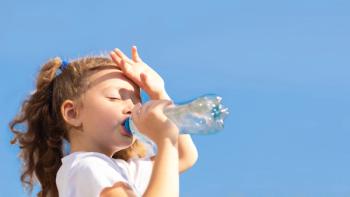
Expired medicine unsafe for children
In a recent poll, only 1 in 5 parents believed it is unsafe for children to take medicine past its expiration date, while many did not know how to properly dispose medicine.
While most parents are aware of the need to dispose of expired or leftover medicine, many do not know how to properly dispose medicine, according to a Mott Poll.
Over-the-counter (OTC) medicine for children’s strength was reported in the homes of 70% of parents. Of these parents, 79% said they check the expiration date when giving their child OTC medicine. If the medicine is past its expiration date, 44% of parents believe it is less effective, and 22% believe it is unsafe.
Only 37% of parents consider it dangerous to give their child expired OTC medicine after any point, while 20% believe it can be given within 1 month of expiration, 14% within 3 months, 14% within 6 months, and 15% within 1 year or more.
Almost half of parents have leftover prescription medicine in the home, with 62% stating they are more careful when disposing prescription medicine than OTC medicine. Parents want to properly dispose medicine for reasons such as protecting the environment and preventing someone from taking expired medicine.
Many parents are unsure how to properly dispose medicine, with 73% not knowing which medicines to mix with coffee grounds or cat litter before disposal and 40% not knowing which can be safely flushed down the toilet. Most parents dispose medicine by throwing it in the trash, with about 30% using a drop box at a hospital, doctor’s office, or pharmacy.
Drug-take-back events are only utilized by 14% of parents, as 47% had not heard of these events, 24% saw it as unnecessary for most medicines, 17% considered it too much hassle, and 15% felt the time or location was inconvenient.
Holding onto expired or leftover medicine poses a health risk for young children, according to researchers. Many young children have experienced unintentional poisoning due to medicine in the home, while older children have taken medicine for experimentation or intentional misuse. Despite this, OTC medicine past its expiration date is often in the home.
Parents often do not know the medicine in their home is expired until their child needs it for their symptoms. In many cases, this occurs in the morning or at night, making it difficult and inconvenient to buy more medicine immediately. To avoid this situation, researchers recommended that parents check expiration dates for OTC medicine twice a year.
Leftover medicine may also be present because a child stops taking it earlier than expected, with a greater risk of infection should they continue to take the medicine after symptoms fade. Parents should ask doctors about the chances of leftover medicine so they can prepare for this beforehand.
Researchers suggested that parents store OTC and prescription medicine in the original packaging and in a cool, dry location, which younger children cannot access. Medicine should also be locked or monitored to avoid misuse from older children.
When disposing medicine, a collection site is the safest place for drop off. When drop off is not an option, parents should put medicine in a plastic bag, dissolve it with cat litter or coffee grounds, seal the bag, and throw it in household trash.
Reference
Parent actions around expired and leftover medicine in the home. Mott Poll Report. October 24, 2022. Accessed October 24, 2022.
Newsletter
Access practical, evidence-based guidance to support better care for our youngest patients. Join our email list for the latest clinical updates.








